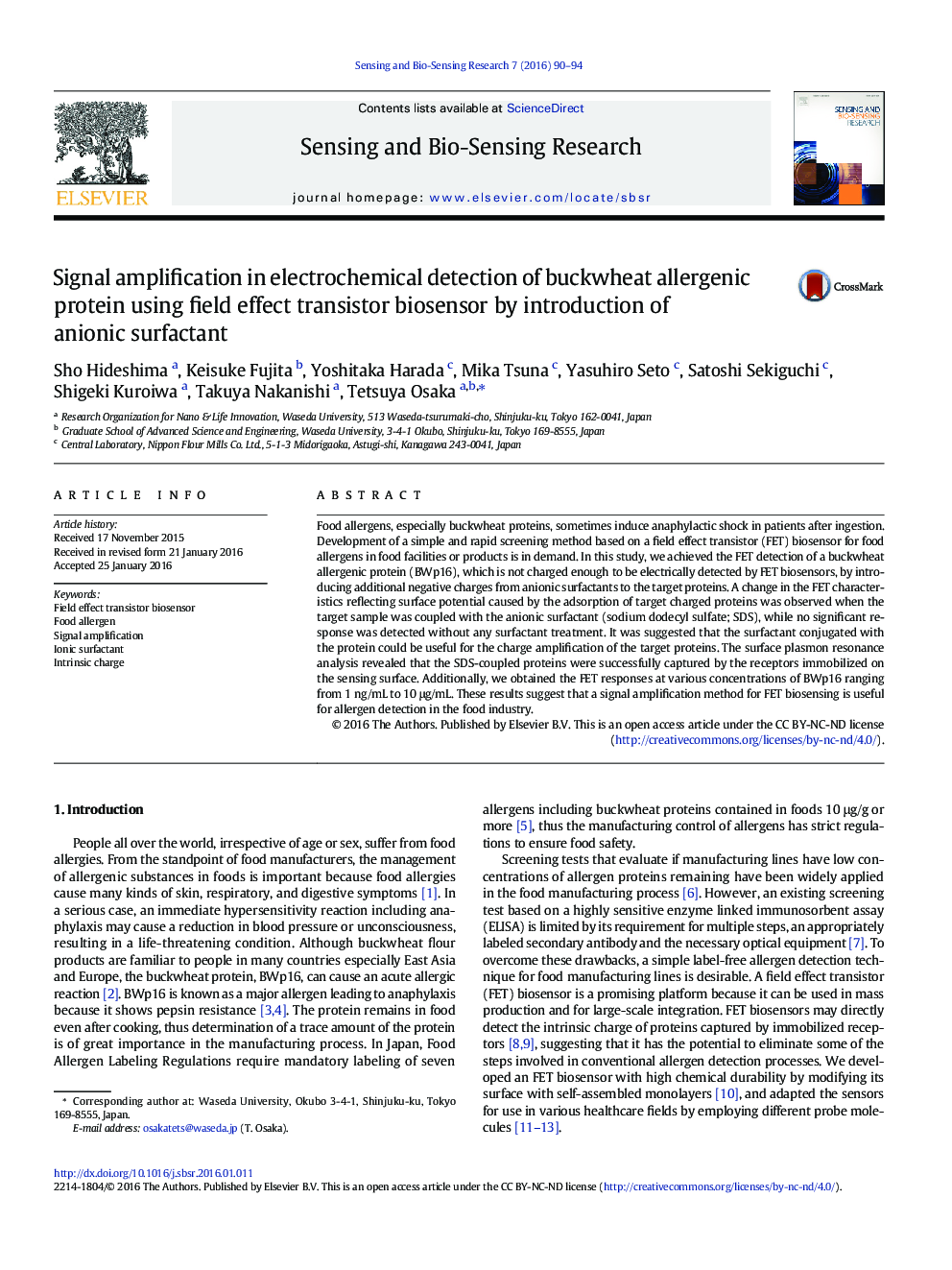| Article ID | Journal | Published Year | Pages | File Type |
|---|---|---|---|---|
| 807369 | Sensing and Bio-Sensing Research | 2016 | 5 Pages |
•A screening method for food allergens based on field effect transistor (FET) biosensors is proposed.•The anionic surfactant, sodium dodecyl sulfide (SDS), works as a signal amplifier for FET detection.•The proposed method achieved the desired degree in sensitivity for allergen detection in industry fields.
Food allergens, especially buckwheat proteins, sometimes induce anaphylactic shock in patients after ingestion. Development of a simple and rapid screening method based on a field effect transistor (FET) biosensor for food allergens in food facilities or products is in demand. In this study, we achieved the FET detection of a buckwheat allergenic protein (BWp16), which is not charged enough to be electrically detected by FET biosensors, by introducing additional negative charges from anionic surfactants to the target proteins. A change in the FET characteristics reflecting surface potential caused by the adsorption of target charged proteins was observed when the target sample was coupled with the anionic surfactant (sodium dodecyl sulfate; SDS), while no significant response was detected without any surfactant treatment. It was suggested that the surfactant conjugated with the protein could be useful for the charge amplification of the target proteins. The surface plasmon resonance analysis revealed that the SDS-coupled proteins were successfully captured by the receptors immobilized on the sensing surface. Additionally, we obtained the FET responses at various concentrations of BWp16 ranging from 1 ng/mL to 10 μg/mL. These results suggest that a signal amplification method for FET biosensing is useful for allergen detection in the food industry.
